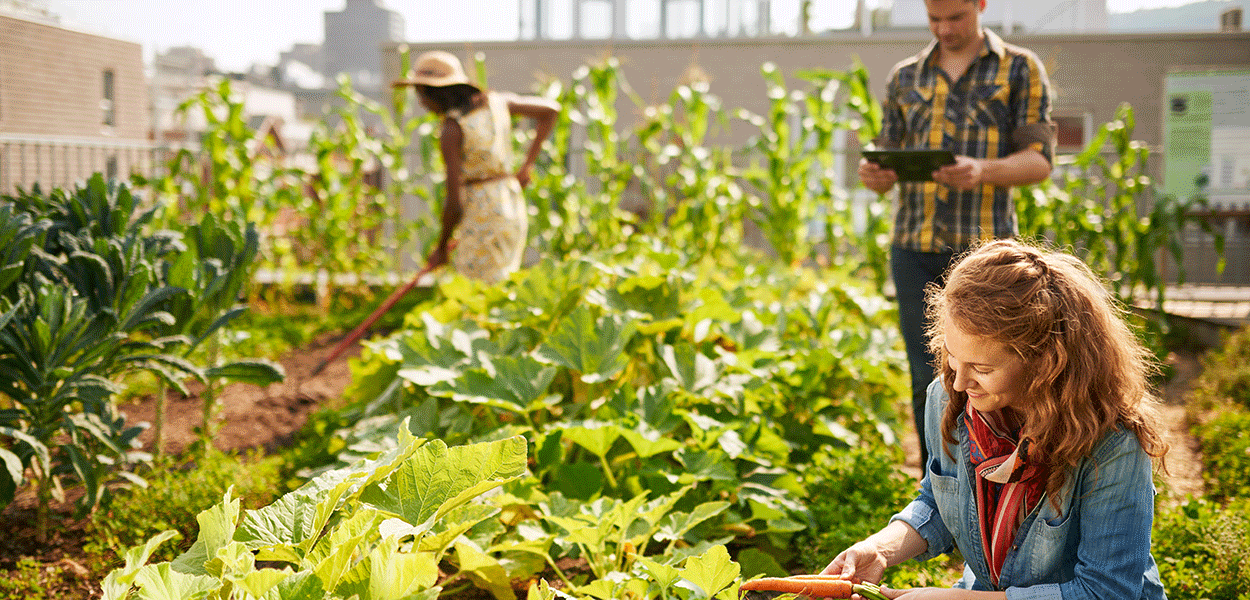Urban areas across Europe are struggling to provide nourishing food that is environmentally friendly produced. Where they do succeed, it is difficult to promote this food, especially among deprived and vulnerable population groups. They do not find the products attractive, or the price is simply too high.
Hands-on, local initiatives that address this problem often fail to become embedded in the wider policy context, and therefore do not reach those in need. Barriers to this integration can be found in siloed ways of working; different policy departments are each responsible for only a small piece of the urban food policy. Within such a policy structure, it is difficult to accommodate initiatives that arise in practice.
Connecting science, policy and practice
Within five years (2022-2027), the FoodCLIC project aims to improve policy-making processes in Europe by connecting science, policy and practice. Both within and between cities. To achieve this, we bring together researchers, policy makers, industry experts and citizens. They unite in Living Labs in 8 European city regions, consisting of 45 cities. Together, the Living Labs form one European network.
Learning by doing in Living Labs
In the Living Labs, researchers, policy makers, sector experts and citizens exchange ideas and jointly shape innovative solutions. They then test the interventions by directly applying them in practice, in the real world. This way, the Labs can identify barriers to and facilitators for scaling processes, and learn quickly and effectively from successes and failures. They naturally discover which business models and investment schemes work well, and what are conducive market conditions and land-use plans.
From local ideas to European policy
Ultimately, the insights gained in the Living Labs will be translated into evidence-based European food policies that benefit everyone. At the end of the project, in 2027, FoodCLIC will implement the new policy practices. Not only in the participating cities, but in additional city-regions in Europe and Africa as well. An online knowledge hub and high-level think tank will foster this integration.
With that, the FoodCLIC project marks a significant step towards more sustainable, inclusive, and healthy urban food environments in Europe.
About coordinator prof. dr. Jacqueline Broerse
Professor Jacqueline Broerse is coordinator of the FoodCLIC project. As an expert in sustainability transitions in food systems, she is involved in several EU advisory boards and projects in that field, such as FIT4FOOD2030 and CLEVERFOOD.
Do you have any questions or interest? Feel free to contact Jacqueline.
